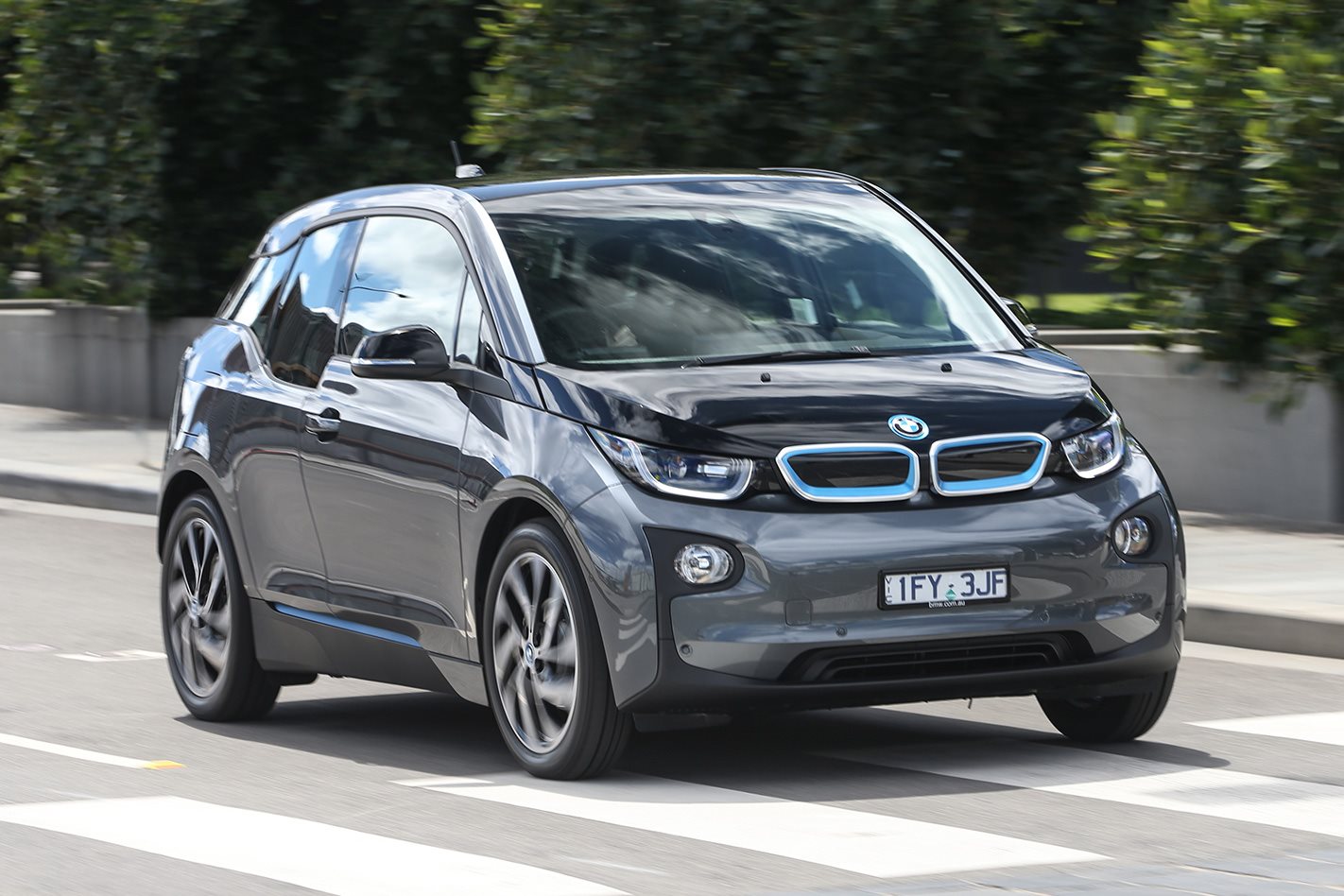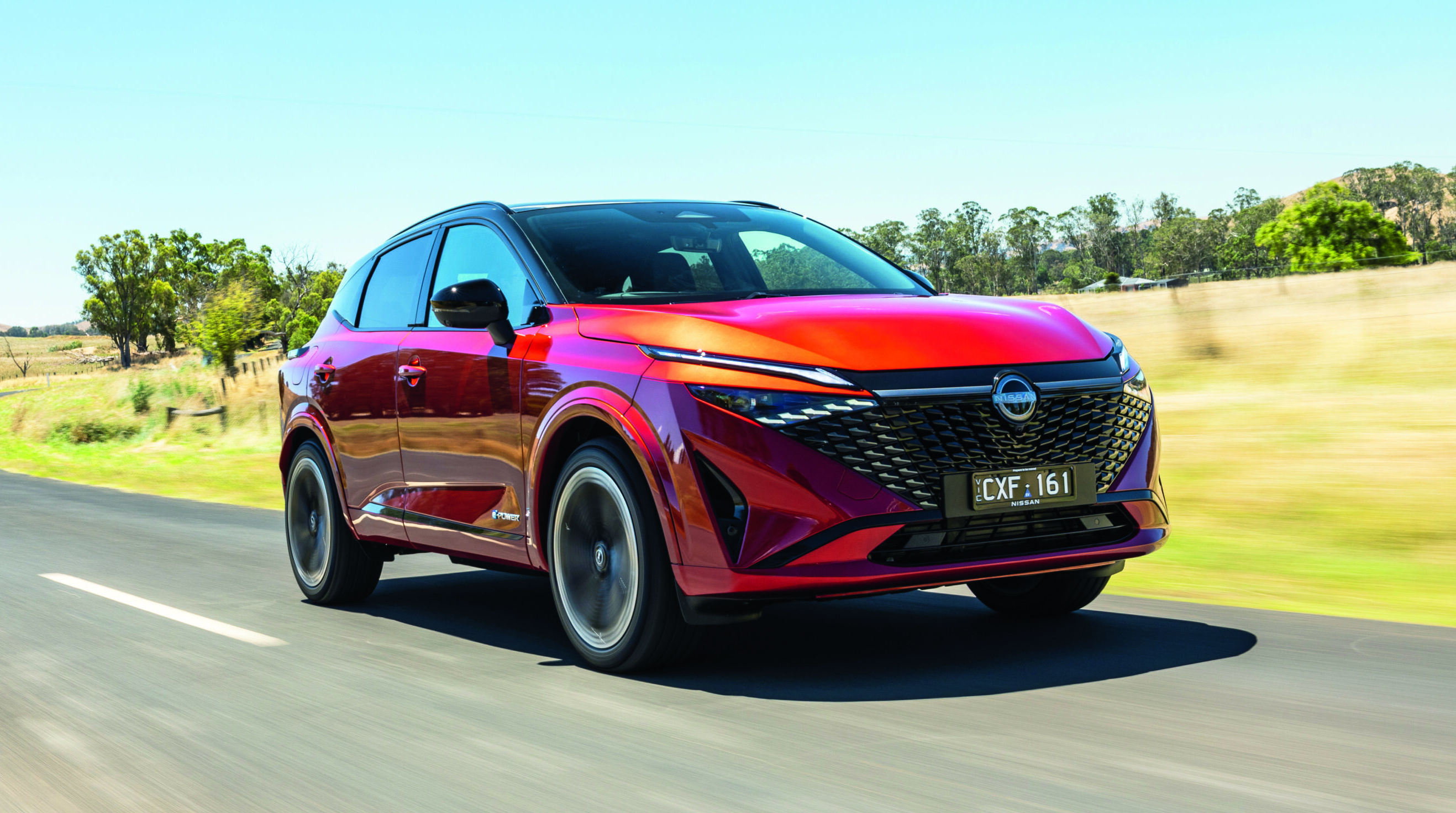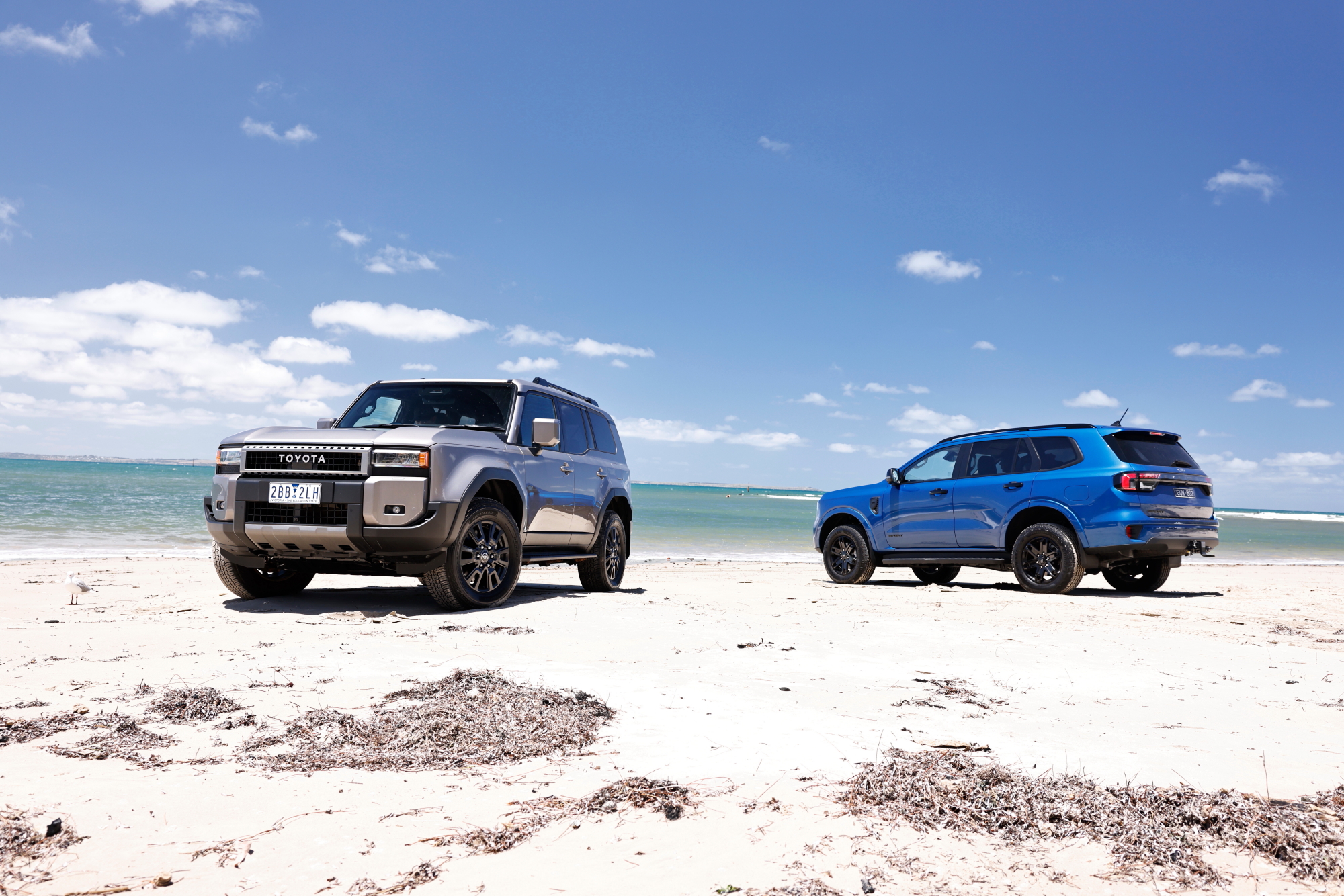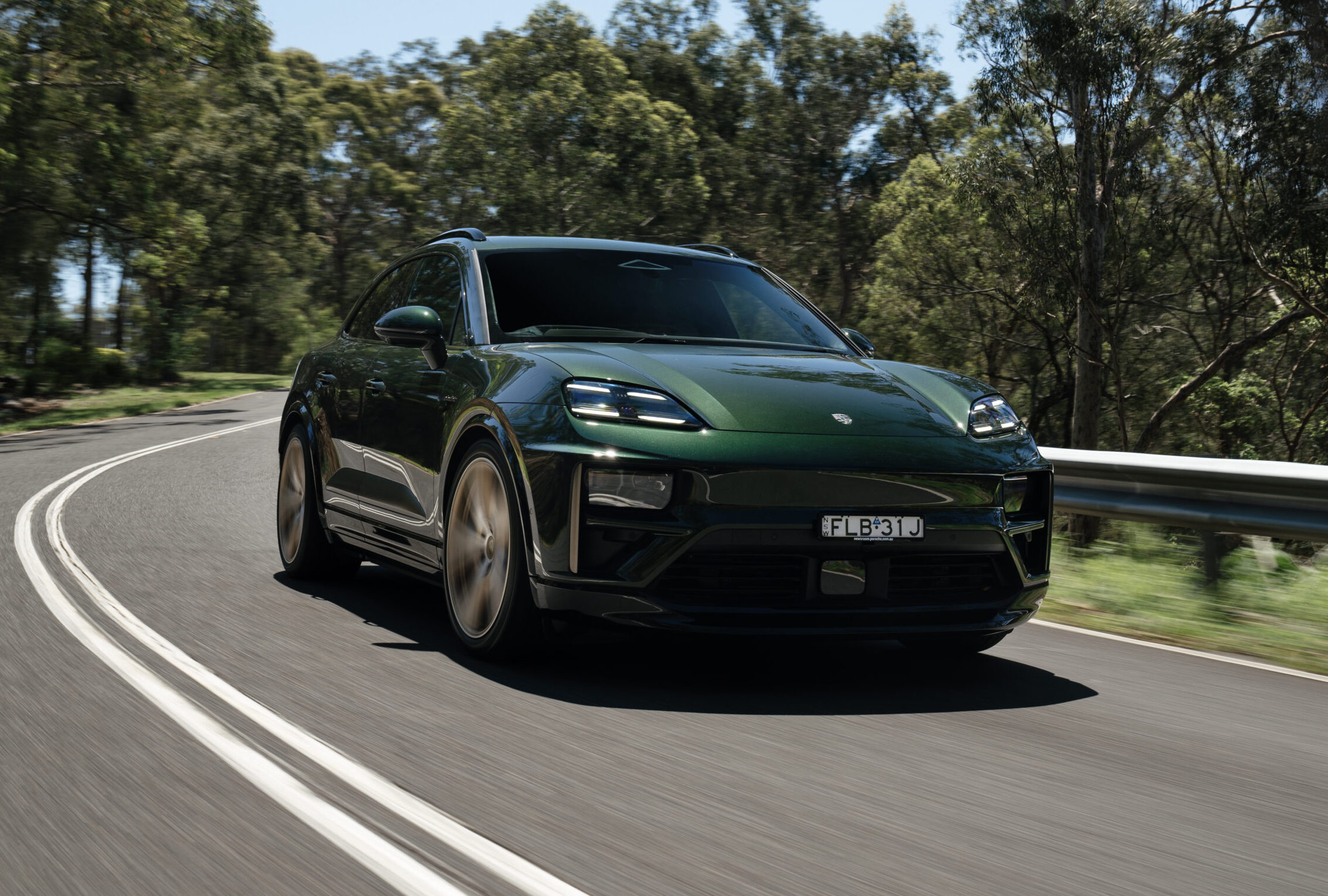A subtle upgrade to the car that received Australia’s top motoring award in 2014 turns it into much more of a viable fossil fuel alternative.
WHAT IS IT? BMW has packed more punch into the batteries of the 2014 Wheels Car of the Year winner, increasing its range by more than 50 percent.
WHY WE’RE TESTING IT BMW’s boffins have managed to squeeze more electrolytes into the 96 cells used to power the i3, increasing electrical capacity from 60Ah to 94Ah – a bit like increasing a conventional car’s tank by half as much again – and eked more savings out of the electronics. It means real-world driving range jumps to about 200km for the battery-only i3, and to 330km for the i3 Range Extender that uses a two-cylinder petrol engine as a generator.
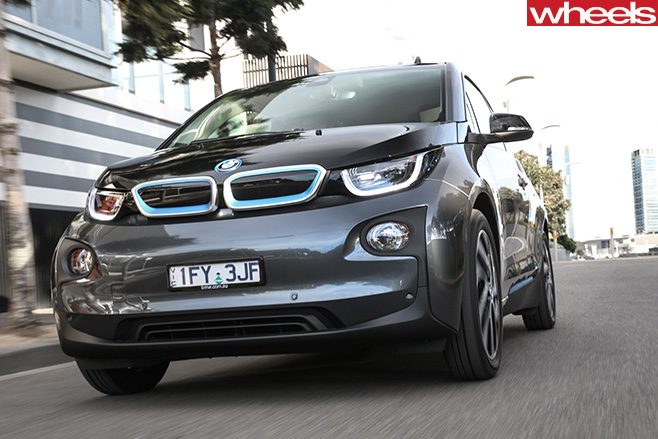
THE WHEELS VERDICT For just $2000 more you can have an all-electric i3 with reduced risk of running out of spark before you reach the home gate
PLUS: Real head-turner; oozes style and technology; big jump in driving range MINUS: Lack of recharging infrastructure; some harshness to ride and braking
THE WHEELS REVIEW WANT a pure electric car but can’t seem to get over that abject fear that your battery-powered ride may one day strand you short of your destination as the electrons dry up? BMW reckons it has the answer.
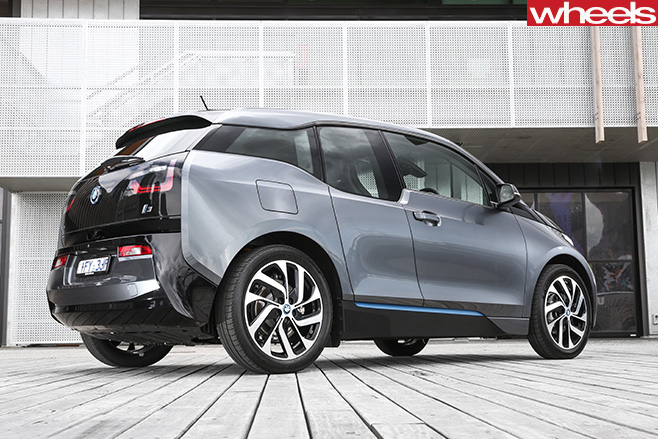
BMW has also thrown in a formerly optional $790 DC-compatible charger that will let you bump the battery up to 80 percent for free at the single rapid recharging point in Sydney, or one of the two Melbourne-based ones, in less than 40 minutes. The idea is to help future-proof the car – more fast recharging stations will come one day. Plugging it into a normal wall socket will take up to 14 hours for a full refill at a cost of about $5 if you’re using green juice.
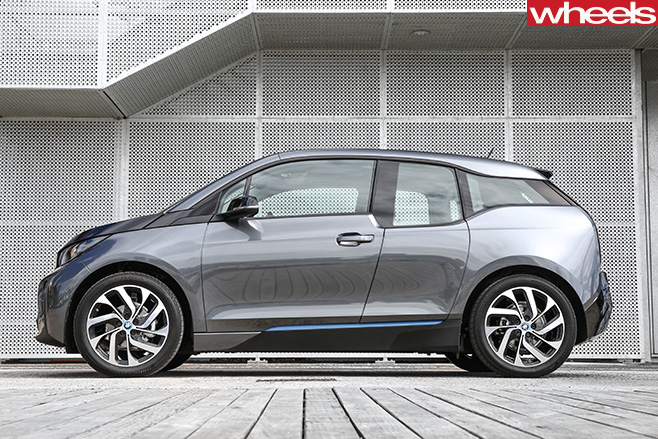
Spend another $6000 for the 120kg petrol-driven 660cc two-cylinder range extender generator that hangs off the back of the i3, and its reach jumps to 330km, up from 245km. The 9.0-litre fuel tank remains the same capacity.
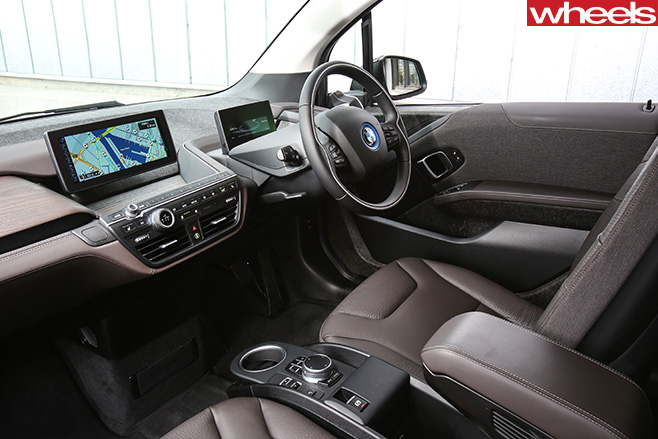
Yes, it’s a little different: selecting drive can be a bit confusing the first time, the regenerative braking borders on brutal, speed humps become small planets at anything above walking speed, the raw fibre-look grey dash is hard to the touch, and the seats are all hand-adjusted and not powered.
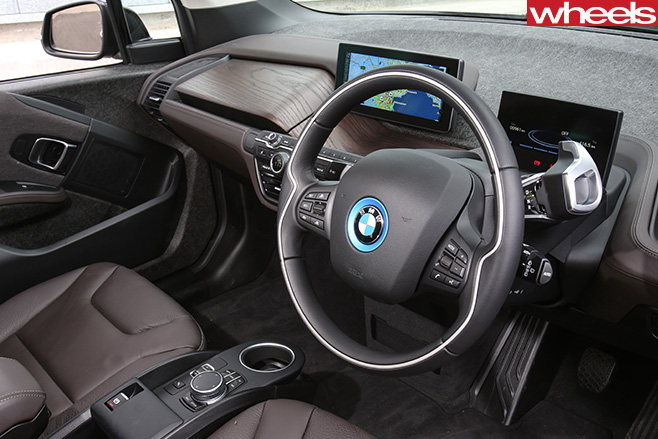
We only spent a couple of hours driving around the crowded northern suburbs of Melbourne in the new 94Ah i3 – via the old 1956 Olympic Games village. Over 45-odd kilometres of driving on everything from freeways to back roads, our range fell from 190km to around 140km, starting in a pure EV and swapping half-way through into a REx.
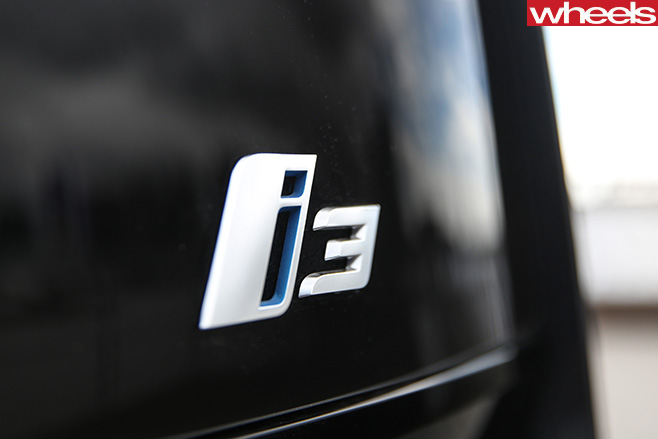
BMW’s i3 has improved, but in most part the improvements are, just like the fuel it uses, invisible to the buyer.
SPECS Model: BMW i3 94Ah Engine: Electric motor Max power: 125kW @ 4800rpm Max torque: 250Nm @ 0rpm Transmission: Single-speed auto Kerb weight: 1245kg Fuel economy: N/a (200km range) 0-100km/h: 5.2sec (claimed) Price: $65,900 On sale: Now

